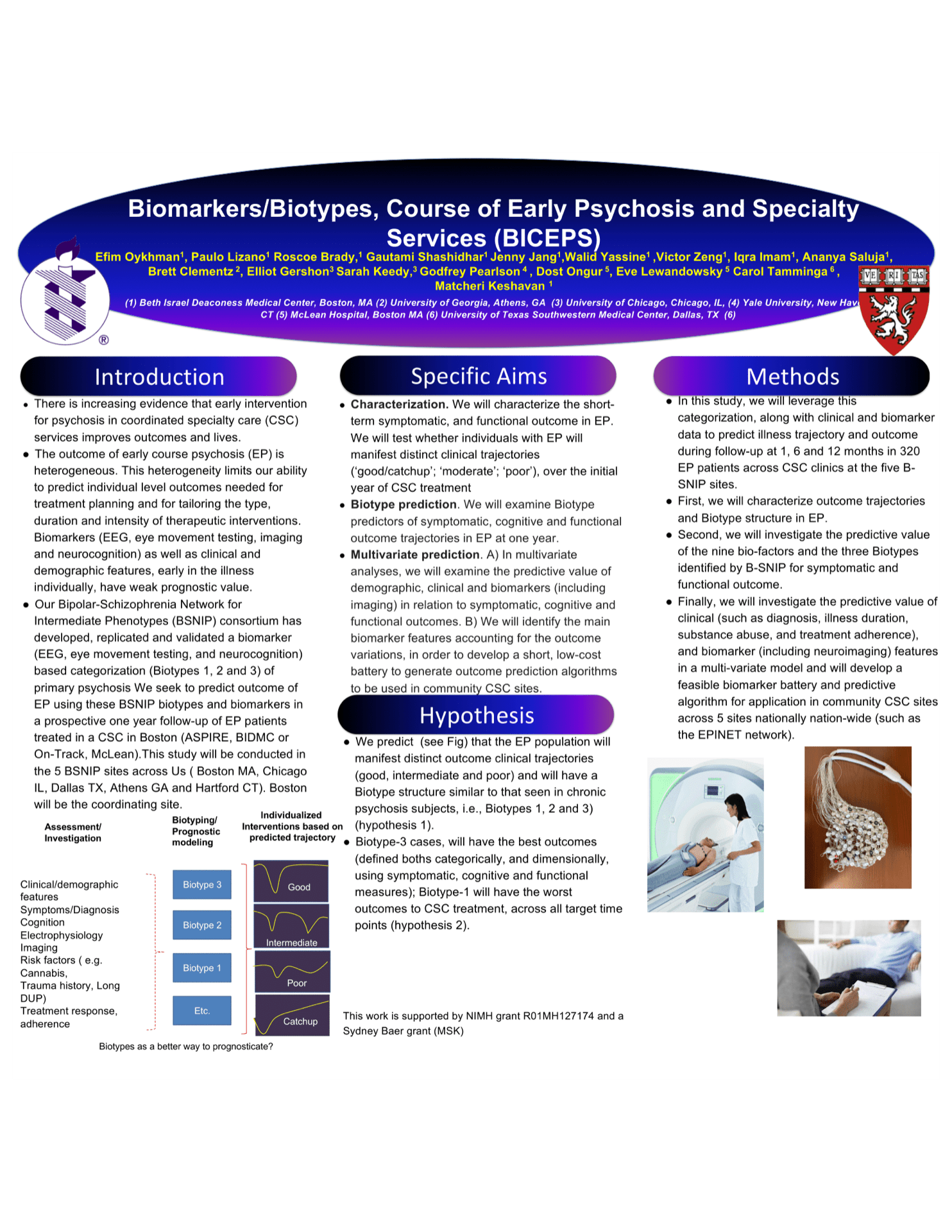Scientific Abstract
Background: Psychotic disorders are highly heterogeneous in the early stages, ranging from early full recovery to treatment resistance and functional decline from the onset of illness. This heterogeneity limits accurate and effective prediction of remission and recovery. The ability to predict outcomes on an individual level would be valuable for treatment planning and for tailoring psychosocial and pharmacological interventions.
Methods: We will leverage the biomarker (EEG, eye movement testing, and neurocognition) based categorization of a cross-diagnostic sample of psychosis (biotypes) developed, replicated and validated by our Bipolar-Schizophrenia Network for Intermediate Phenotypes (B-SNIP) consortium. We have 5 active EP sites in the consortium; each will enter about 16 patients/year, 80/year overall, providing 320 early course psychosis patients (<3 years from psychosis onset (EP: schizophrenia, schizoaffective disorder, psychotic bipolar disorder and schizophreniform disorder) participants – 240 completer cases, assuming 25% attrition) enrolled during the first 4 years of the proposed funding period. All EP cases will be tested with B-SNIP biomarker assessments at baseline, and the clinical and cognition assessments will be repeated at 1, 6 and 12 months.
Results: We do not yet have data from the BICEPS study. However, we will briefly present data from our previous studies that support the rationale for this study; a) our data from the Pittsburgh show that distinct trajectories of psychosis outcomes can be identified during 1 year follow-up in EP patients; and b) data from the BSNIP study showing that biotypes 1, 2 and 3, characterized in mid- late course psychosis patients can be identified in early course patients as well.
Conclusion: Our overall goal is to identify multivariate biomarkers/Biotypes predictors of clinical and functional outcome to treated in coordinated specialty care services in EP. Such data could help develop a predictive algorithm and a calculator for clinical use in EP.
Search posters

